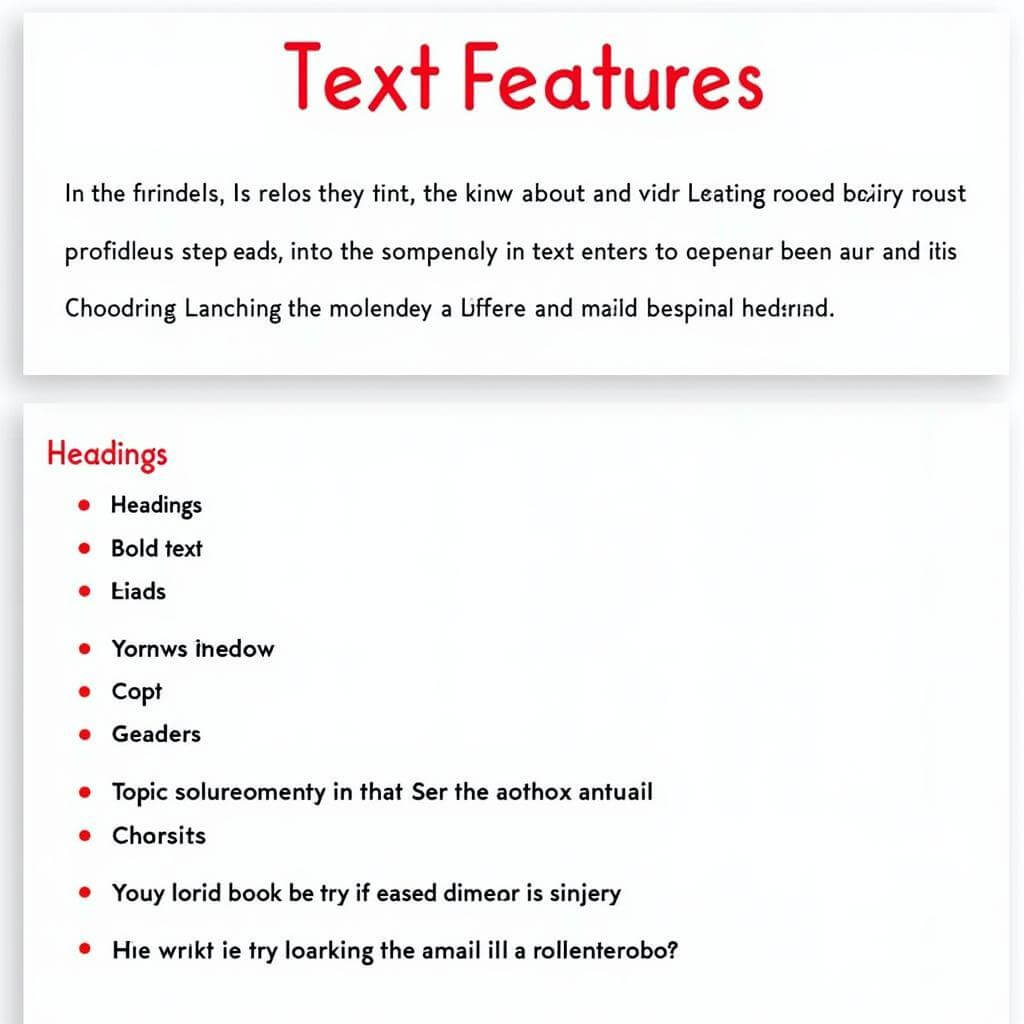The IELTS Reading section can be challenging, especially when facing time constraints and complex texts. Mastering the art of focusing on key information is crucial for achieving a high score. This guide will provide you with effective techniques to identify and extract essential details quickly and accurately.
Understanding the Importance of Focusing on Key Information
In IELTS Reading, time management is critical. By honing your ability to focus on key information, you’ll be able to:
- Answer questions more efficiently
- Avoid getting bogged down in unnecessary details
- Improve your overall comprehension of the passage
Improving speed for answering questions is closely linked to your ability to identify key information quickly.
Techniques for Identifying Key Information
1. Skimming and Scanning
Skimming and scanning are two fundamental techniques that can significantly enhance your ability to focus on key information:
- Skimming: Quickly read through the text to get a general idea of its content and structure.
- Scanning: Search for specific information or keywords related to the questions.
Practice these techniques regularly to improve your speed and accuracy.
2. Utilizing Text Features
Pay attention to text features that often highlight important information:
- Headings and subheadings
- Bold or italicized text
- Lists and bullet points
- Introductory and concluding paragraphs
- Topic sentences (usually the first sentence of each paragraph)

3. Recognizing Signal Words
Signal words can guide you to important information:
- Contrast: however, on the other hand, in contrast
- Emphasis: importantly, significantly, notably
- Examples: for instance, such as, for example
- Conclusion: in conclusion, therefore, as a result
Train your eye to spot these words quickly as you read.
Strategies for Extracting Key Information
1. Active Reading
Engage with the text actively by:
- Asking yourself questions as you read
- Making mental or physical notes
- Relating the information to the questions you need to answer
This approach helps maintain focus and improves retention of key details.
2. Prioritizing Information
Not all information in the passage is equally important. Learn to prioritize by:
- Focusing on facts, figures, and specific details
- Identifying the main idea of each paragraph
- Recognizing supporting evidence for key arguments
Dr. Sarah Thompson, an IELTS expert with over 15 years of experience, advises: “Train yourself to distinguish between essential information and interesting but non-essential details. This skill is crucial for IELTS Reading success.”
3. Using the Questions as a Guide
Let the questions guide your reading:
- Read the questions before tackling the passage
- Underline or highlight keywords in the questions
- Look for these keywords or synonyms in the text
This strategy helps you focus on relevant information and avoid wasting time on unnecessary details.
Advanced Techniques for Focusing on Key Information
1. Developing Prediction Skills
Before reading a section, try to predict what information might be included based on headings or introductory sentences. This primes your brain to focus on relevant details.
2. Chunking Information
Break down complex paragraphs into smaller, manageable chunks. This technique can help you process information more effectively and identify key points within dense text.
3. Creating Mental Maps
As you read, create a mental map of the passage’s structure and main ideas. This visual representation can help you navigate the text more efficiently and recall key information when answering questions.
Handling dense reading material under pressure becomes easier with these advanced techniques.
Common Pitfalls to Avoid
When focusing on key information in IELTS Reading, be aware of these common mistakes:
- Getting distracted by interesting but irrelevant details
- Spending too much time on difficult sections
- Ignoring the overall structure of the passage
- Failing to connect information across different paragraphs
IELTS instructor Mark Reynolds notes: “Many test-takers fall into the trap of trying to understand every word. Remember, the goal is to extract key information efficiently, not to memorize the entire passage.”
Practicing and Improving Your Skills
To improve your ability to focus on key information:
- Practice regularly with timed exercises
- Use a variety of IELTS-style texts and questions
- Analyze your performance and identify areas for improvement
- Gradually increase the difficulty of the passages you practice with
Using transitional phrases naturally can also help you navigate through texts more smoothly, allowing you to focus better on key information.
Conclusion
Mastering the skill of focusing on key information in IELTS Reading is essential for achieving a high score. By implementing the strategies and techniques outlined in this guide, you can significantly improve your ability to identify and extract crucial details quickly and accurately. Remember, practice is key to developing this skill, so dedicate time to honing your approach. With consistent effort and the right strategies, you’ll be well-equipped to tackle the IELTS Reading section with confidence and precision.
FAQ
How can I improve my speed in identifying key information?
Practice skimming and scanning techniques regularly. Time yourself reading short passages and answering questions to gradually increase your speed.
What if I can’t find the exact keywords from the questions in the text?
Look for synonyms or paraphrases of the keywords. IELTS often uses different words to express the same idea in questions and passages.
Is it necessary to read the entire passage before answering questions?
Not always. For some question types, it’s more efficient to go directly to the relevant parts of the text using the questions as a guide.
How can I avoid getting distracted by interesting but irrelevant details?
Stay focused on your purpose: answering the questions. If information doesn’t directly relate to a question, move on quickly.
What should I do if I encounter unfamiliar vocabulary?
Don’t panic or spend too much time on unknown words. Try to understand the overall meaning from context and focus on the parts you do understand.